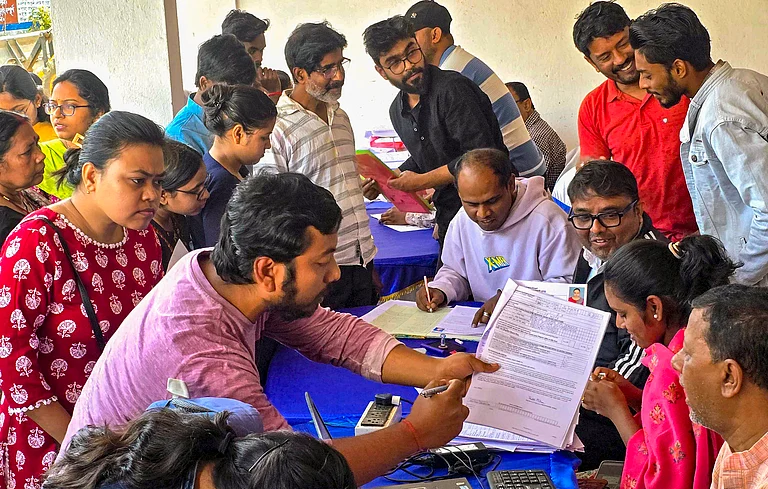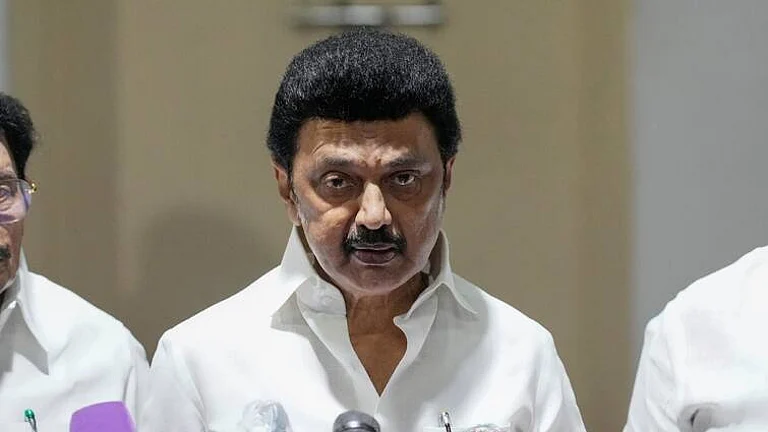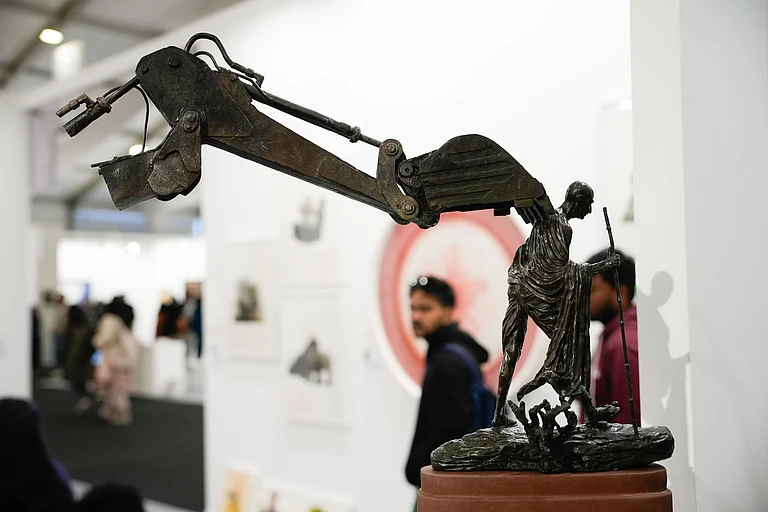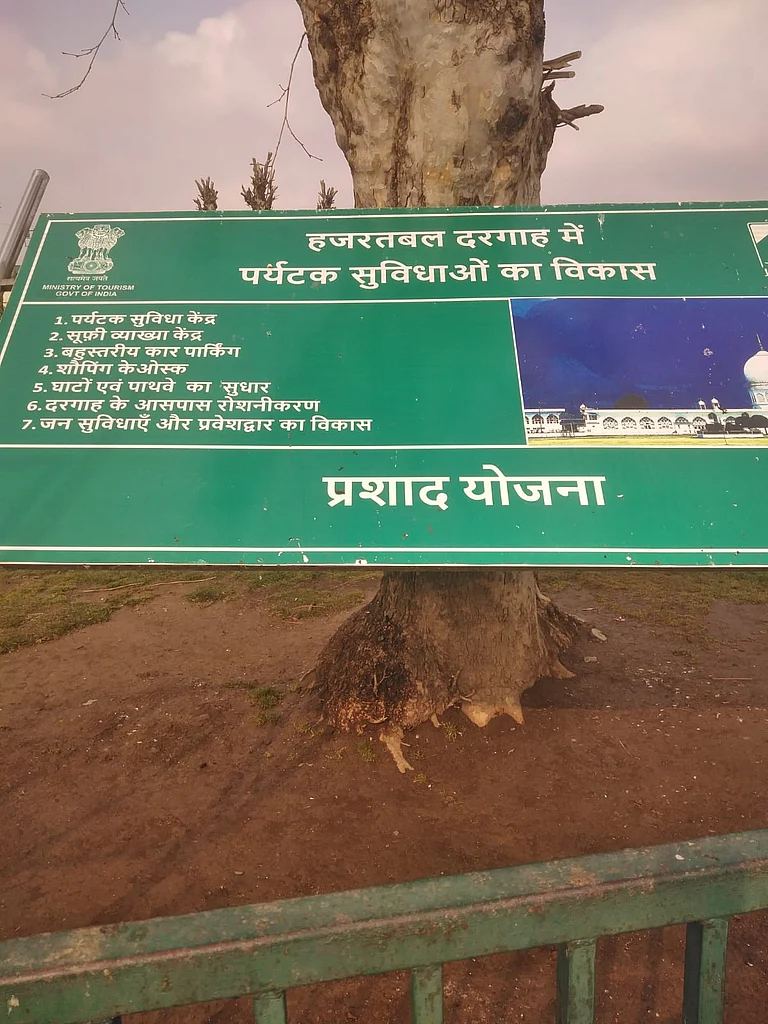The Agniveer scheme is a hurried decision and should have been tried out on an experimental basis before being implemented nationwide, military veterans of the Northeast have said, amid protests against the radical recruitment programme for the three armed forces.
Manipur, a strategically important state, which shares an international border with two regions of Myanmar, where Indian militant groups are known to have training camps—Sagaing and Chin State—have witnessed protests against the scheme organised by the opposition Congress.
Also Read | Why Is Agnipath Scheme Facing The Heat?
Taking to the streets in Imphal, the capital city, members of the Manipur Pradesh Youth Congress shouted anti-government slogans while accusing the Centre of trying to play with the future of the youths. Apart from the deployment of security forces to control the crowd, Section 144 was also clamped for a couple of hours in the areas. Around a hundred protesters were detained by police.
Meanwhile, in Assam, Chief Minister Himanta Biswa Sarma hailed the scheme as “historic”.
“It will provide an opportunity to aspiring youth keen to don uniforms by attracting young talent from society, in tune with contemporary tech trends and plough back skilled, disciplined & motivated manpower into the society (sic),” Sarma tweeted.
However, Ranjit Borthakur, a retired Brigadier from Assam and former chairman of the Assam Public Service Commission, said that the scheme that seeks to induct 46,000 Agniveers into the armed forces, is a decision implemented in a hurry.
He said that before going for such a large-scale recruitment process, the government should have inducted a small number of cadets into a few units on an experimental basis.
“The scheme itself has a lot of flaws but if they wanted to implement it, they should have played it out as case studies for about a few years and then implement it,” Borthakur told Outlook. “They are going for the first recruitment process in September this year without knowing the consequences of it. The best way would have been to try with some numbers, experiment with a few units and then see after two-three years how it is coming out. Then if it's okay then you can go one a bigger way.”
He, however, added that this scheme may resolve the shortage of finances for defence modernisation as after four years the government would not have liabilities of providing a pension.
“The cost for the government with the Agnipath scheme is less, but this should not be done at the cost of the security of the country. Jawans take time to get moulded to a unit. The time of 3.5 years is a very short period for that,” said the defence veteran.
Retired Lt. Colonel Suneet Newton, a former Defence Public Relations Officer of the Indian Army, agreed with Borthakur that Agnipath is a hurried decision.
“It would have been better had the project been implemented as a pilot project with tailor-made packages, keeping in mind each service's unique requirements and specialised branches within them,” he said.
“However, it was heartening to hear the vice chief of army staff on one of the TV channels saying that the defence minister has unbridled powers to make changes and mid-course corrections as the implementation progresses and new experiences are gained.”
Assam has to hire central armed forces to deal with border flare-ups and internal conflicts. During crisis situations, like the violence during CAA protests, Assam-Mizoram border clashes etc., it had to hire a huge number of paramilitary forces from outside the state. If the pending vacancies are filled in Assam Rifles through Agniveers, as stated by the Ministry of Home Affairs, this might help in reducing the shortage of manpower in the armed forces in the Northeast.
Borthakur said that one positive aspect of the new recruitment policy is that as it is based on the All India All Class policy, it might be more beneficial for youths in Assam, a state which has fewer numbers of people in the security forces compared to that of North India.
In Northeast India, over 12 insurgent groups are either fighting for “independence” like the NSCN(IM) in Nagaland and United Liberation Front of Asom (Independent) or revolting for more autonomy within the state. The success of the Agniveer scheme in the region will depend on the effective rehabilitation and resettlement of the remaining 75 per cent of Agniveers after four years of the Tour of Duty, including their absorption in para-military forces, state police forces and allied security organisations.
As insurgent groups have been recruiting youths through various mediums, former Agniveers might become a soft target for their combat skills, many in the region fear. Borthakur, while not denying the apprehension, said that a robust employment system will give less opportunity for such groups to pull trained soldiers as cadre.
“There might be few who might be exploited by militant groups but there would not be a large number of people pulled off by such groups if they are given employment after their services in the Army. But every year a large chunk of army personnel retires at a young age of 38-39 years, but how many of them are absorbed in the paramilitary forces, Assam police or others? Unless it is formalised as law, it is not possible to enrol all of these Agniveers,” said Borthakur.
“My only suggestion will be that there should be open-mindedness in the execution of this scheme, and the narrative of mid-course corrections should not only be empty rhetoric, but it should be done with utmost sincerity without displaying any fear or favour. It will become imperative for the military leadership to give candid and forthright recommendations to the political leadership for changes and corrections required dynamically,” said Suneet Newton.


























